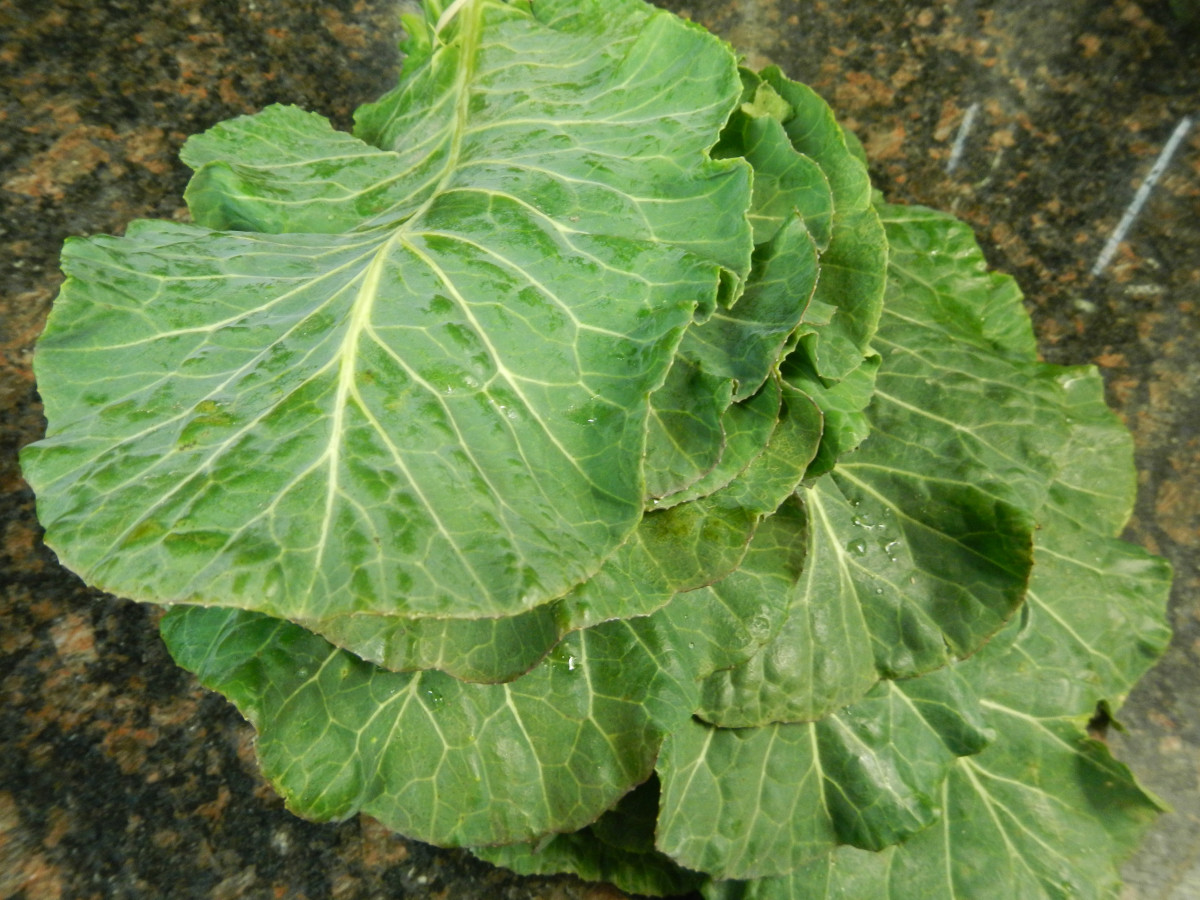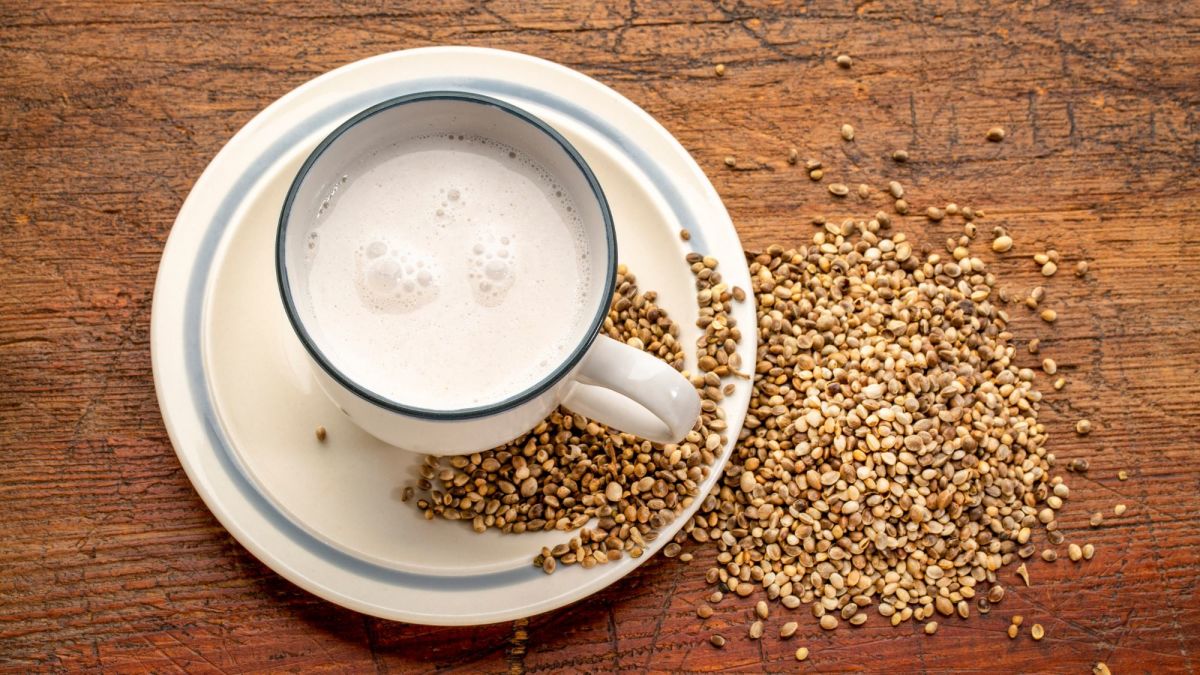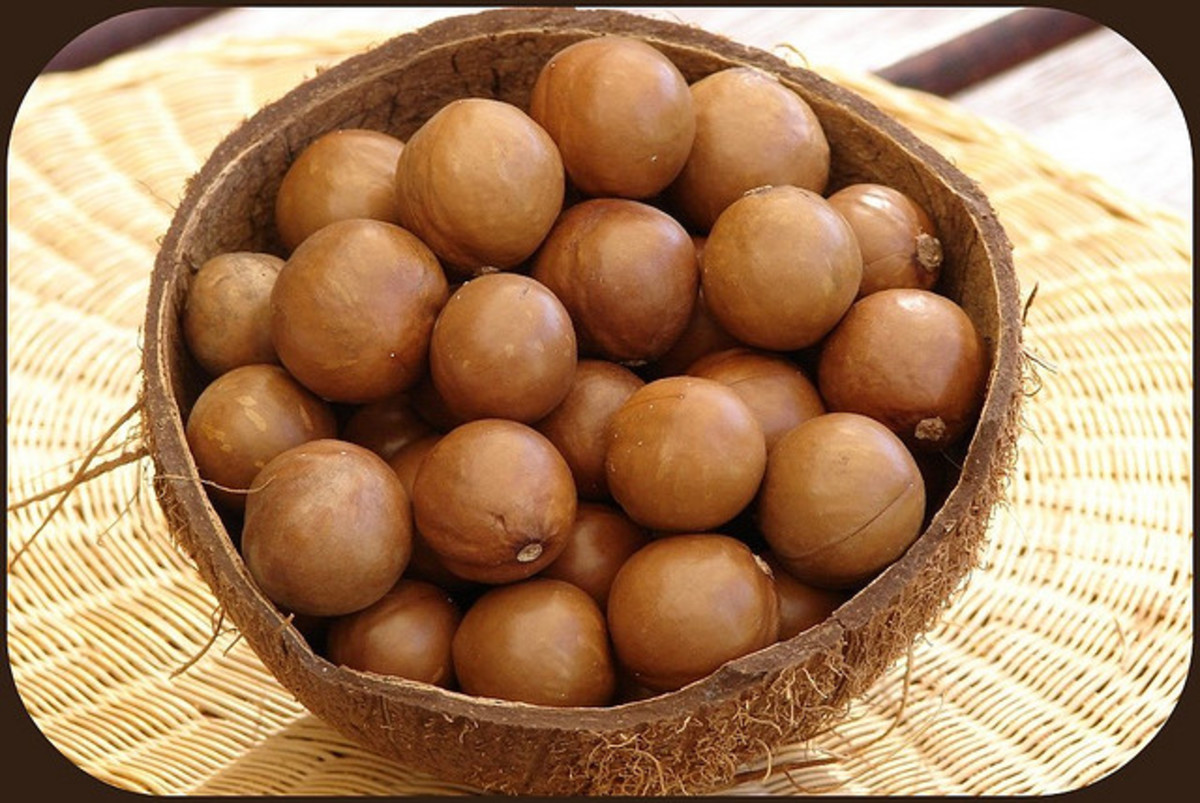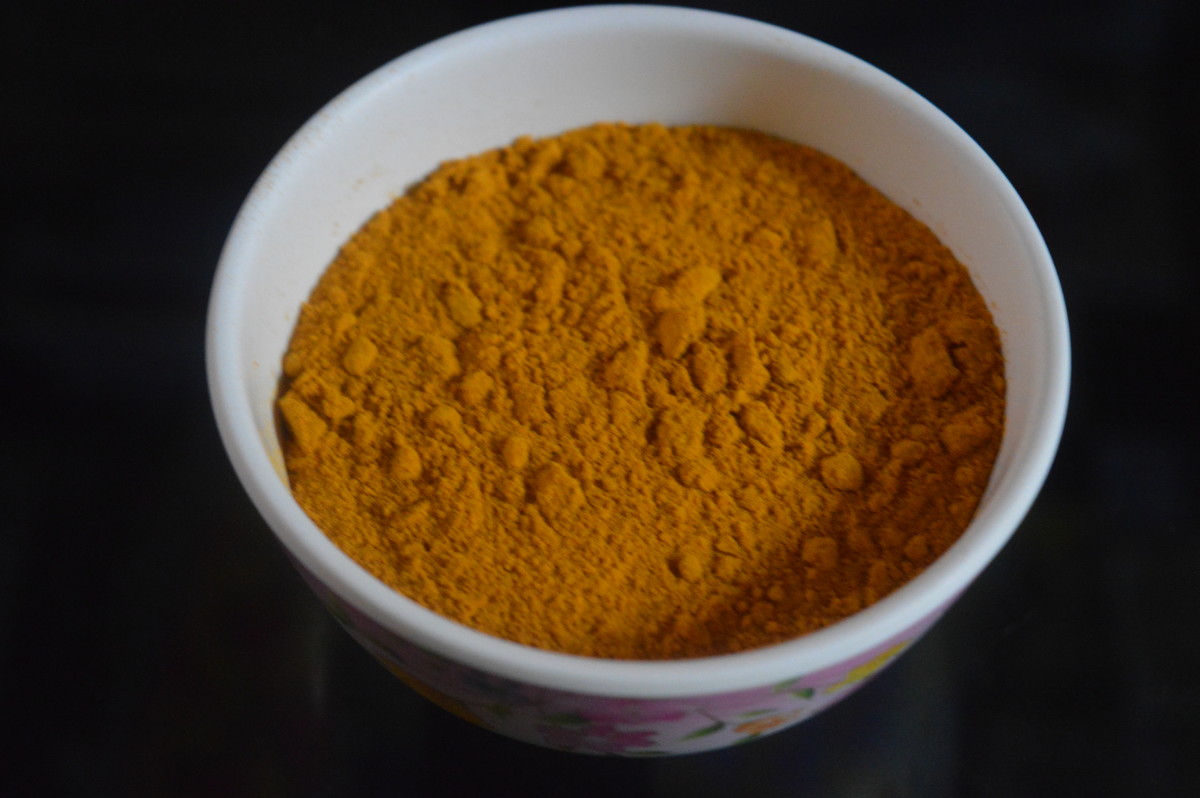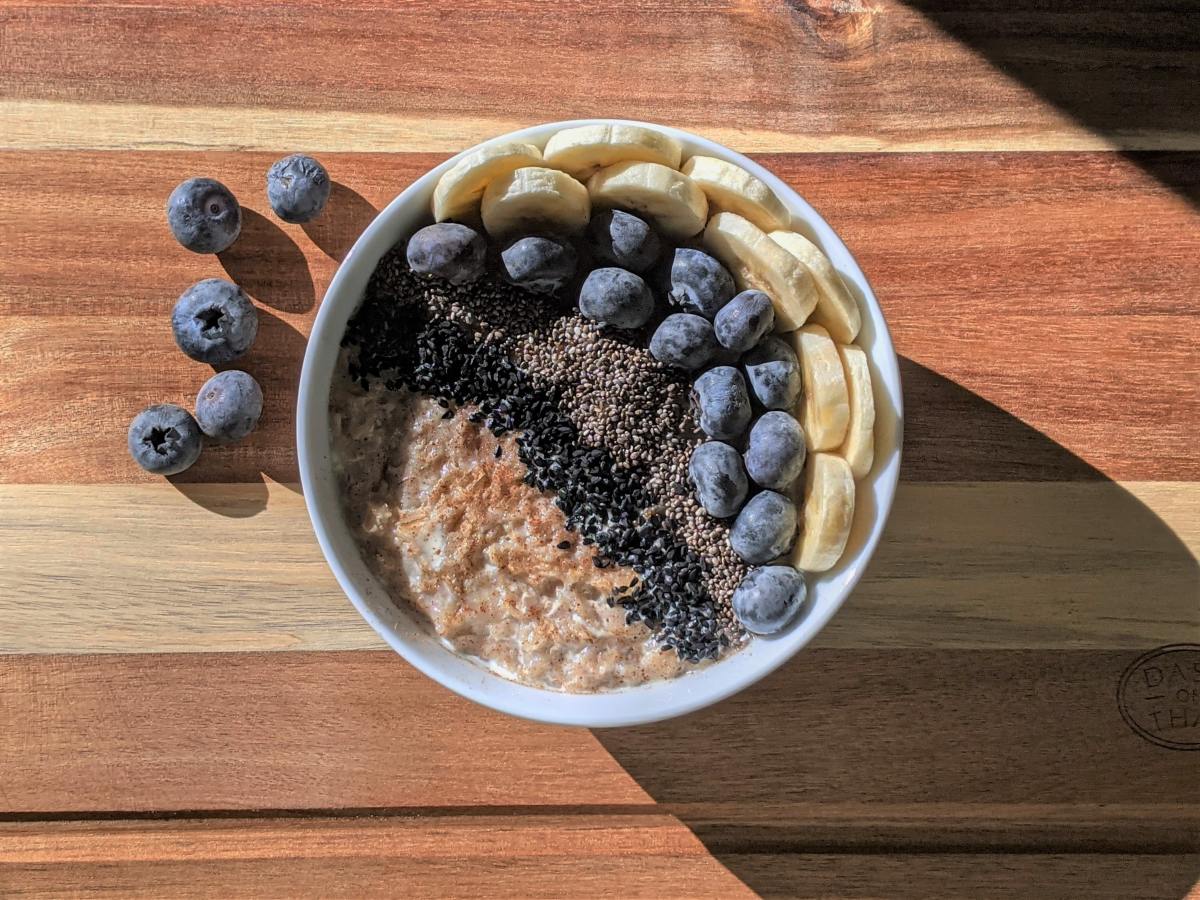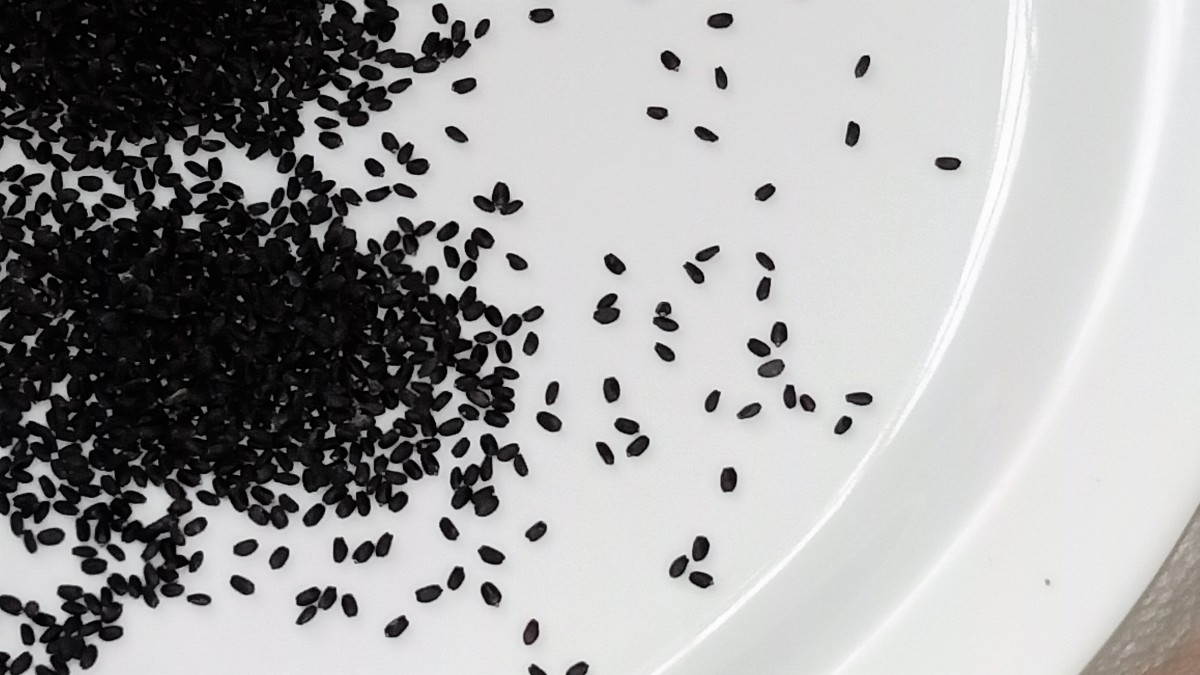The Health Benefits of Brazil Nuts
Native to the Amazonian Rain Forest, the Brazil Nut is an antioxidant and nutrient rich powerhouse. Adding a few of these to your diet can provide numerous health benefits and help prevent the onset of disease.
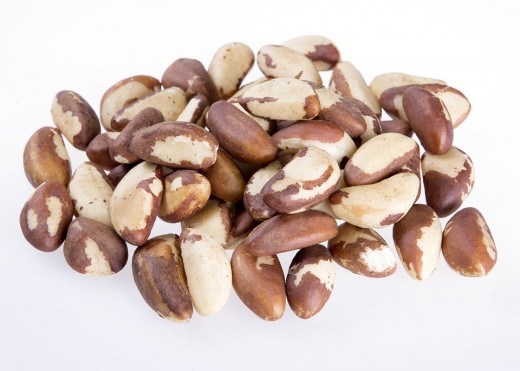
Rich Source of Selenium
Many of the health benefits can be attributed to the Brazil Nut's high level of the trace-element selenium. In fact, just one ounce (about 28 grams) of the nut contains roughly 750% of the recommended daily intake. Selenium is a powerful antioxidant which protects your cells against damage caused by exposure to toxins and free-radicals.
It also plays a role in boosting the immune system which strengthens your natural defenses against bacterial and viral infections.
A deficiency in selenium could cause disorders such as asthma, anxiety, depression, heart disease, rheumatoid arthritis, or even seizures.
Eating just one or two of these nuts a day contains 100% of the recommended daily allowance of selenium your body requires.
Selenium's Role in Thyroid Function
The thyroid has the highest concentration of selenium than any other organ in the body. That's because this mineral plays an important role in the thyroid gland's process of producing thyroid hormone.
Adequate selenium levels are essential for proper thyroid function as it aids in converting the inactive T4 thyroid hormone into the active T3 form.
A deficiency in selenium is associated with a variety of thyroid disorders, such as:
- Hypothyroidism
- Hashimoto's thyroiditis
- Enlarged thyroid
- Grave's disease
Anti-Inflammatory Benefits
Brazil nuts can help with inflammation issues in the body as they contain ellagic acid, which is known to have anti-inflammatory properties. As mentioned previously, Brazil nuts are packed with selenium, which is also an inflammation-fighting agent.
An Abundant Source of Healthy Fats
At approximately 210 calories per ounce (about 28 grams), Brazil Nuts are among the highest in caloric concentration, when compared to other nuts. Most of the calories can be attributed to it’s high fat content, which incidentally, also gives the nut its rich and creamy flavor. However, most of the fat is of the mono-unsaturated and poly-unsaturated variety, which is known to raise the HDL 'good' cholesterol, while decreasing the LDL 'bad' cholesterol. A healthy blood lipid profile is a major factor in reducing the risk of cardiovascular disease and the risk of stroke.
To support this claim, in a clinical study documented in the Journal of Nutrition and Metabolism, subjects were divided into four group, each group given a different single serving size of Brazil Nuts: 0, 5, 20, or 50 grams. Blood samples were taken and tested to obtain a cholesterol both before and several times after eating the Brazil Nuts. The results showed that groups eating 20 or 50 grams of nuts had a lipid profile that was significantly improved just 9 hours after eating the nuts. The subject's 'bad cholesterol' (LDL) was reduced by about 20 points! Even more encouraging, the benefits lasted even 30 days out after a single serving!
Natural Testosterone Booster
Testosterone is an important component of men's health. Having the proper levels can help increase fertility and enhance sex drive. It also plays a part in muscle growth, increased metabolism (burns fat), and generally helps men feel more energized and healthy.
Research studies* have shown that selenium has the ability to increase testosterone levels, particularly for men over the age of 30. As mentioned above, Brazil nuts are an abundant source of natural selenium.
*Source: https://www.ncbi.nlm.nih.gov/pubmed/19091331
A Complete Protein
Brazil nuts are high in protein. One ounce contains about 4 grams. But more importantly, it’s a complete protein, meaning that the protein content contains all 9 essential amino acids that are a dietary requirement of humans and other animals. These 9 essential amino acids are critical to good health, as the body cannot manufacture these nutrients on it’s own.
Nutrition Facts in 1 Ounce (28 grams) of Brazil Nuts
Calories / Nutrients
| Amount
| % Daily Value
|
|---|---|---|
Calories
| 210
| |
Total Fat
| 20g
| 30%
|
Saturated Fat
| 6g
| 30%
|
Trans Fat
| 0g
| |
Cholesterol
| 0mg
| |
Sodium
| 4mg
| 0%
|
Potassium
| 184mg
| 6%
|
Total Carbohydrate
| 4g
| 2%
|
Dietary Fiber
| 2g
| 8%
|
Sugars
| 0g
| |
Protein
| 4g
| |
Vitamin A
| 0%
| |
Calcium
| 6%
| |
Vitamin E
| 8%
| |
Magnesium
| 26%
| |
Copper
| 24%
| |
Vitamin C
| 0%
| |
Iron
| 6%
| |
Vitamin B1
| 12%
| |
Selenium
| 768%
| |
Manganese
| 18%
|
Too Much of a Good Thing...
With the high Selenium levels in Brazil nuts, you want to be careful not too eat too many. The National Academy of Sciences Institute of Medicine had set a maximum intake of selenium for adults at 400 mcg (micrograms) per day, which is the equivalent of about six Brazil nuts.
Although selenium poising is rare, symptoms of selenium overdose can include nausea and vomiting. In extreme cases, hair loss and skin lesions.
The recommended daily allowance of selenium is 55 mcg per day - that's about one large, or two smaller Brazil nuts. However many health experts believe 55 mcg is too low and recommend getting 100 mcg a day. That's roughly two to three Brazil nuts, depending upon size and exact selenium content.
Selenium Deficiency
Not getting enough selenium can cause problems as well. A deficiency in selenium could cause muscle weakness and pain, discoloration of the skin and whitening of the fingernail beds, fatigue, asthma, anxiety, depression, and even heart disease.
If you suspect you have selenium deficiency, don't self-diagnose. Seek the help of a health professional.
Technically, It's a Seed, Not a Nut!
Despite its status as a nut, the Brazil Nut is actually a seed of the Brazil Nut Tree.
The seeds are inside in what is considered the fruit of tree. The fruit is has a hard woody shell, much like a coconut, and is about 4 to 5 inches in diameter and weighs roughly about 4 pounds. The shell contains roughly 8 to 24 wedge-shapes seeds, each of which has it's own hard shell. Inside this shell is what we know as the Brazil Nut.

The Brazil Nut Tree
These amazing trees can grow as high as 200 feet tall and live as long as 800 years! The trunk can reach diameters as large as 3 to 6 feet wide.
It's scientific name is Bertholletia excelsa, and is in the classification order, Ericales, which is shared by such plants as blueberries, cranberries, tea, and persimmons.
Although commonly called the Brazil Nut tree, the tree can be found, in addition to Brazil, other nearby regions, such as Columbia, Venezuela, Peru, Bolivia, and the Guianas. The trees are found in large forest along the banks of the Amazon River.
One of these large trees can produce as much as 250 pounds of nuts a year.

© 2018 Robby H

